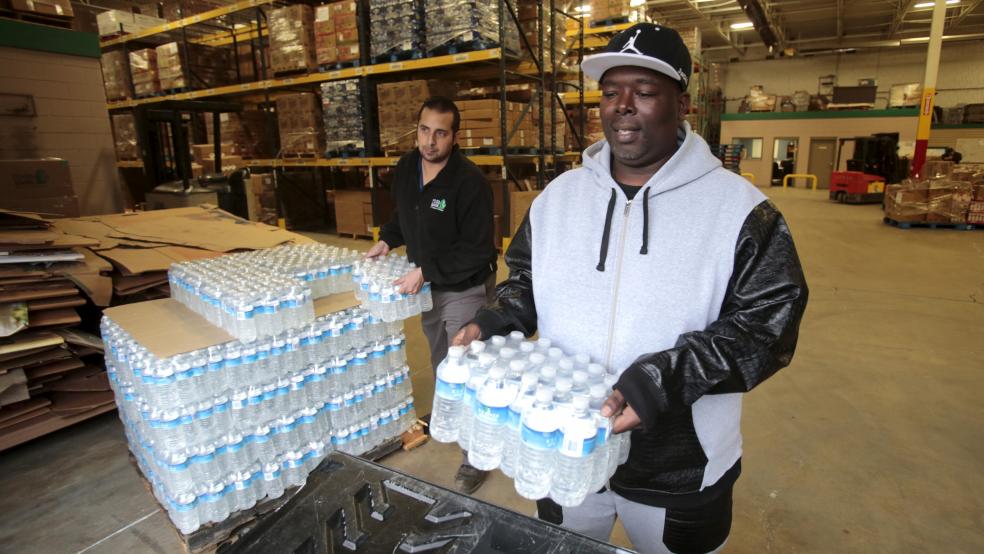Michigan Gov. Rick Snyder, reeling from claims that his administration grossly mishandled a water crisis in the city of Flint that left residents there uninformed about severe lead contamination in their drinking water, is challenging the Obama administration’s denial of a federal disaster declaration.
His request, however, hinges on a claim that a manifestly man-made disaster is actually some sort of act of God.
Related: Flint’s Drinking Water Crisis Just Got More Toxic with Legionnaire’s Disease
President Obama over the weekend declared a state of emergency in the city, which makes limited federal assistance available to residents in an amount not to exceed $5 million. Snyder, on Wednesday, issued a public call for the president to reconsider, asking instead that Flint be declared a disaster area.
In a letter to Obama, he wrote, “This unique disaster poses imminent and long-term threat (sic) to citizens of Flint.” He continued, saying that its “severity warrants special consideration” for all government aid programs available for both public and individual recovery efforts as well as hazard mitigation assistance.
However, it seems unlikely that the administration will change its course.
The criteria for a disaster declaration from FEMA, the Federal Emergency Management Administration are as follows:
Related: Why the Gas Leak in California No One Is Talking About Is Such a Disaster
“The President can declare a major disaster for any natural event, including any hurricane, tornado, storm, high water, wind-driven water, tidal wave, tsunami, earthquake, volcanic eruption, landslide, mudslide, snowstorm, or drought, or, regardless of cause, fire, flood, or explosion, that the President determines has caused damage of such severity that it is beyond the combined capabilities of state and local governments to respond.”
The drinking water crisis in Flint was caused not by a natural event, or by fire, flood, or explosion. The problem arose after the state government took over management of the city’s affairs, and in an effort to save money, switched the city’s source of drinking water from Lake Huron to the badly polluted Flint River.
State officials reportedly failed to take the necessary steps to clean the dirty water to a point at which it would not corrode pipes, and as a result, lead began leaching into the water, which frequently ran brown from the pipes in peoples’ homes.
State and federal officials appear to have known of elevated lead levels in Flint’s drinking water in early 2015, but Michigan state officials consistently challenged claims of researchers and medical professionals that that there was a problem.
Related: Obama Strikes Another Blow Against King Coal
After months of denials in the face of copious evidence, Flint residents were eventually advised to stop drinking tap water in October.
In his letter to the Obama administration, Snyder says the administration took a narrow reading of the law in denying disaster funding, and tried to make the case that the crisis in Flint is actually a natural disaster.
“I submit that this disaster is analogous to the flood category, given that qualities within the water, over a long term, flood and damaged the city's infrastructure in ways that were not immediately or easily detectable. This disaster is a natural catastrophe in the sense that lead contamination into water is a natural process.”
Left out of the letter is the fact that Michigan officials knew well in advance of switching to the Flint River, that the new water would be nearly 20 times as corrosive as the old water source, yet still failed to take action to ameliorate it.
While there is a strong humanitarian argument in favor of providing additional relief to the people of Flint, the Obama administration appears disinclined to let state officials pass off a massive failure of state government as an unavoidable natural disaster.





